Air conditioner makes whooshing noise? Find out why and fix it.
Air conditioner makes whooshing noise makes you upset? Well,Identifying and addressing a persistent whooshing sound in your air conditioner can be a bit like solving a mystery.
This noise, which may resemble the gentle whoosh of ocean waves when your AC starts up or shuts down, can become a source of annoyance and concern when it persists or occurs unexpectedly.
Identifying a whooshing noise in your air conditioner requires a systematic approach. Start by listening attentively, inspecting basic components, and performing basic maintenance tasks.
If the noise persists or if you’re unsure about any aspect of the diagnosis or repair, don’t hesitate to contact a qualified HVAC technician.
Timely attention to these issues can help ensure your air conditioner operates efficiently and quietly, providing the comfort you need.
Related Post>>>>Air conditioner Keeps tripping Breaker.
Common Causes of a Whooshing Sound.
A well-maintained air conditioning system typically operates quietly, with only the occasional sound of starting or ending a cycle, or a low hum during operation.
When you start hearing unusual noises like a whooshing sound from your AC unit, it’s a clear sign that something may be amiss, and it’s best to have it examined by a professional HVAC technician.
Understanding the specific cause of an AC’s whooshing noise isn’t always straightforward because it can result from various underlying issues. These issues can encompass:
1.Airflow Issue.
Restricted or improper airflow is one of the common causes of a whooshing sound in your central air conditioner.
When your AC unit is operating optimally, it should maintain a smooth and consistent flow of air throughout your home, generating minimal noise in the process.
However, when airflow is disrupted or obstructed, it can lead to turbulence and the whooshing noise you hear.
Clogged or Dirty Air Filter
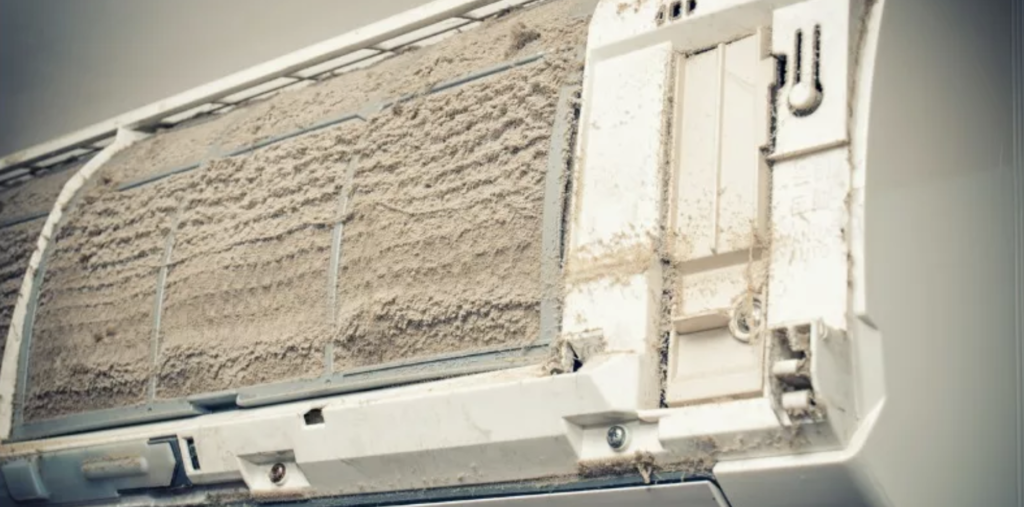
A frequently encountered culprit behind restricted airflow is a clogged or dirty air filter.
Air filters are essential components of your HVAC system, designed to trap dust, pollen, and other airborne particles.
Over time, these filters can become congested with debris, hindering the passage of air. When this occurs, your air conditioner has to work harder to push air through the filter, which can lead to turbulence and a noticeable whooshing sound.
Thankfully, addressing this issue is relatively straightforward. Start by locating the air filter, typically located in the return air grille or within the HVAC unit itself.
Check the filter for visible dirt and debris. If it appears clogged or dirty, it’s time for a replacement.
Consult your HVAC system’s manual or manufacturer’s recommendations for the correct filter type and size.
Replacing the filter with a clean one will not only help eliminate the whooshing noise but also improve the overall efficiency of your air conditioner.
Underlying Issues: In some cases, the whooshing sound may persist even after changing the air filter.
This could be indicative of more serious underlying issues with your HVAC system. An aging and inefficient system may struggle to maintain proper airflow, leading to noise as it strains to do its job.
2.Ductwork Problems.
Your home’s ductwork serves as the circulatory system of your HVAC (Heating, Ventilation, and Air Conditioning) system, responsible for distributing conditioned air to every room.
When it functions correctly, it does so silently and efficiently. However, when issues develop within the ductwork, it can lead to the distinct whooshing sound you might hear from your air conditioner
–Leaking Ducts:
One common culprit behind whooshing noises in an air conditioner is leaking ducts.
Over time, ductwork can develop small cracks, gaps, or holes due to various factors such as aging, wear and tear, or even pests.
These openings allow air to escape before it reaches its intended destination, causing a loss of airflow and creating turbulence within the ducts. The result is a whooshing sound as air rushes through these openings.
–Damaged Ducts:
In addition to leaks, damage to the ductwork, such as dents, tears, or disconnections, can also disrupt the smooth flow of air.
These irregularities can cause air to swirl and create noise as it travels through the ducts. It’s important to visually inspect your ductwork for any visible signs of damage.
If you discover any issues, addressing them promptly can improve the efficiency of your HVAC system and reduce noise.
–Loose Ducts:
Loose or poorly secured duct sections can lead to vibrations and noise as air moves through them.
Loose connections can rattle or produce a whooshing sound as air escapes or is forced through small gaps. Properly securing and sealing ductwork is crucial to maintaining a quiet and efficient HVAC system.
Addressing ductwork problems is essential not only to eliminate the whooshing noise but also to ensure that your HVAC system operates efficiently.
Leaking or damaged ducts can lead to energy waste and uneven heating or cooling in your home, ultimately affecting your comfort and utility bills.
If you suspect ductwork issues are causing the whooshing sound in your air conditioner, it’s advisable to inspect your ducts thoroughly, identify problem areas, and act on appropriate solutions.
These solutions may include duct sealing, repairs, or even duct replacement if the damage is extensive.
By addressing ductwork problems, you can restore the efficient and quiet operation of your HVAC system, providing consistent comfort throughout your home.
Also read>>>>Air Conditioner Keeps Turning On & Off.
3.Blocked Vents.
Blocked vents are a commonly overlooked yet potentially significant source of whooshing sounds emanating from an air conditioner.
These sounds occur when the normal airflow through your HVAC system is disrupted due to an obstruction in one or more supply vents.
Imagine your HVAC system as a carefully balanced orchestra, with each component playing a crucial role in harmony.
Supply vents are instrumental in delivering conditioned air to various parts of your home. When one of these vents becomes blocked, it upsets this delicate balance, creating excess pressure and turbulence within the air ducts.
How Blocked Vents Cause Whooshing Sounds.
When a supply vent is obstructed, whether by furniture, curtains, debris, or other objects, the air conditioning system compensates for the reduced airflow by directing more air through the unobstructed vents.
This increased airflow results in higher pressure and velocity as the air moves through the ducts. The sudden rush of air can create turbulence and noise, producing the characteristic whooshing sound.
This whooshing sound is essentially the result of uneven distribution of air within the ductwork.
The unobstructed vents receive more air than they are designed to handle, and the excess air speed causes vibrations, rattling, or whooshing noises as it navigates through the ducts.
Identifying and Addressing Blocked Vents.
Identifying blocked vents is relatively straightforward. Start by visually inspecting all the supply vents in your home to ensure that they are unobstructed.
Move furniture or objects away from vents and make sure curtains or other items are not impeding the airflow.
In some cases, vents may become blocked due to dust or debris accumulation; ensure they are clean and free from obstructions.
Once you’ve cleared any blockages, the airflow should return to its balanced state, eliminating the whooshing noise.
Regularly checking and maintaining your supply vents can help prevent this issue from recurring and ensure efficient and quiet operation of your air conditioning system.
Also read>>>>HoneyWell Thermostat Blank Screen.
4.Blower Fan Issue.
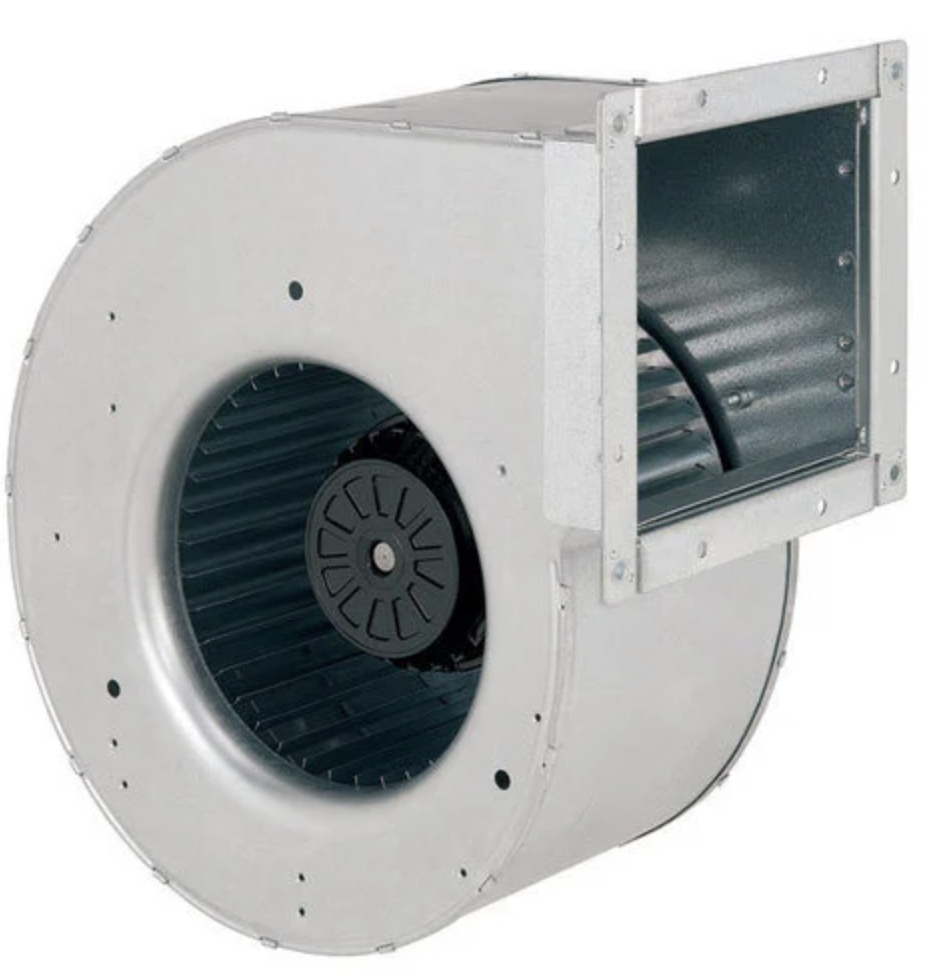
The blower fan within your air conditioner’s indoor air handling unit plays a pivotal role in the efficient circulation of conditioned air throughout your home.
When operating correctly, it does so quietly and effectively. However, when the blower fan experiences problems, it can lead to irregular airflow and generate unwanted whooshing sounds.
Causes of Blower Fan-Related Whooshing Sounds.
1.Misaligned Blades:
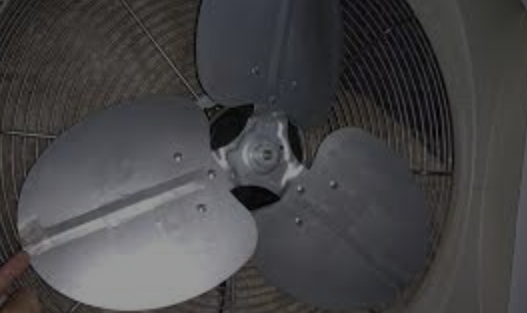
Over time, the blades of the blower fan can become misaligned due to various factors, such as wear and tear or even vibrations from the unit.
When these blades are not properly aligned, they can disrupt the smooth flow of air. As air is forced past misaligned blades, it encounters resistance, creating turbulence and the whooshing noise you hear.
2.Damaged Blades:
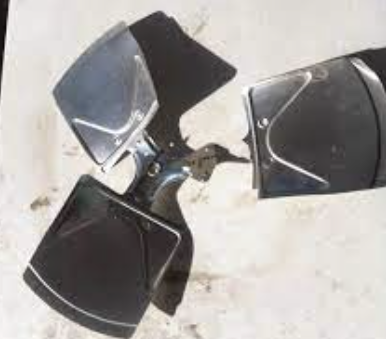
Physical damage to the blades of the blower fan is another potential cause of whooshing sounds.
Even small dents, chips, or bends in the blades can alter the airflow dynamics. As air passes over damaged blades, it may create irregular patterns, leading to noise.
3.Clogged Blades:
Dust, dirt, and debris can accumulate on the blades of the blower fan, affecting their ability to move air efficiently.
This buildup can lead to turbulence and whooshing sounds as the air is disrupted by the obstructions on the blades.
Identifying and Addressing Blower Fan Issues.
If you suspect that a malfunctioning blower fan is responsible for the whooshing sound in your air conditioner, it’s crucial to address the issue promptly for several reasons:
- Efficiency: A malfunctioning blower fan can reduce the overall efficiency of your HVAC system, leading to decreased cooling or heating performance.
- Comfort: Inconsistent airflow caused by blower fan issues can result in uneven temperatures throughout your home, affecting your comfort.
- Noise: The whooshing sounds generated by a problematic blower fan can be disruptive and annoying, detracting from the peaceful atmosphere in your home.
To identify blower fan issues, you should first turn off the power to your air conditioning system and visually inspect the fan blades.
Look for misalignments, damage, or signs of clogging. If you notice you can realign the blades, repair or replace damaged components, and clean the blades to restore the fan’s proper function.
Regular maintenance, including cleaning and inspecting the blower fan, can help prevent these issues from occurring and ensure your air conditioner operates quietly and efficiently, providing a comfortable and peaceful indoor environment.
5.Dirty Evaporator Coils.
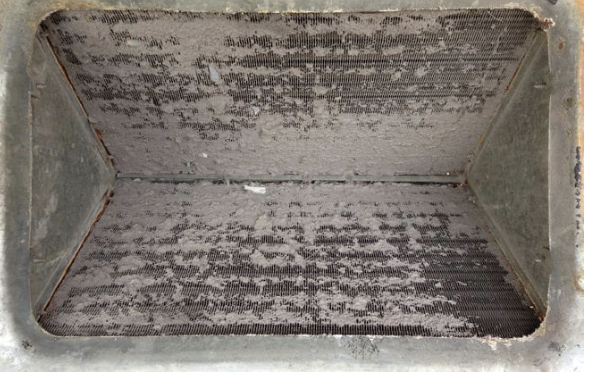
The evaporator coil in your air conditioning system is a critical component responsible for cooling and dehumidifying the indoor air.
It works by absorbing heat and excess humidity from the air passing over it. However, when neglected, the evaporator coil can accumulate dust, dirt, and debris, leading to airflow disruptions and leading your current problem “air conditioner makes whooshing noise.”
Causes of Whooshing Sounds Due to Dirty Evaporator Coils.
*Airflow Disruption:
Over time, the evaporator coil can become coated with a layer of dust, dirt, and other particulate matter.
This accumulation acts as an insulating barrier, inhibiting the coil’s ability to efficiently absorb heat and moisture from the passing air.
As air attempts to move over the obstructed coils, it encounters resistance, resulting in turbulence and noise, often manifesting as a whooshing sound.
*Frozen Evaporator Coil:
In some cases, the presence of dirt and debris on the evaporator coil can lead to another issue – the formation of ice or frost on the coil’s surface.
A frozen evaporator coil restricts the airflow even further, causing air to whoosh loudly as it tries to pass through the narrow openings between ice or frost buildup.
Identifying and Addressing Dirty Evaporator Coil Issues:
Identifying dirty evaporator coil issues typically requires a professional HVAC technician’s expertise.
Attempting to clean the coil without the proper tools and knowledge can lead to further damage. Here’s how the process usually unfolds:
- Visual Inspection: HVAC technicians will perform a visual inspection to assess the condition of the evaporator coil. They look for signs of dirt, debris, or frost accumulation.
- Cleaning: If the coil is dirty but not frozen, technicians will proceed with a thorough cleaning. They use specialized cleaning solutions and equipment to remove the accumulated debris and restore the coil’s efficiency.
- Defrosting: In the case of a frozen evaporator coil, technicians will initiate a defrosting process to safely melt the ice or frost. Once the coil is completely thawed, they can then clean it to prevent further issues.
- Preventative Maintenance: Regular maintenance schedules, which include cleaning and inspecting the evaporator coil, can prevent these issues from occurring in the first place. Maintaining a clean coil ensures optimal performance and minimizes the risk of whooshing sounds.
Addressing dirty evaporator coil issues is crucial not only for noise reduction but also for the overall efficiency and longevity of your air conditioning system.
Clean coils enable your AC unit to cool your home effectively, remove excess humidity, and operate quietly, creating a comfortable and peaceful indoor environment.
Also read>>>>Rheem Air Conditioner Problems.
Conclusion.
In conclusion, a whooshing sound in your air conditioner can be a concerning and disruptive issue, but it’s not an insurmountable one.
Understanding the common causes behind this noise, as discussed in this post, is the first step toward effectively addressing and eliminating it.
Airflow issues, such as clogged or dirty air filters, damaged ductwork, and blocked vents, can disrupt the smooth flow of air in your HVAC system, leading to whooshing sounds.
Regular maintenance and inspection of these components can help prevent these issues and ensure your system operates efficiently and quietly.
Issues related to the blower fan, including misaligned or damaged blades, can also create turbulence and noise within the system.
Timely identification and professional repairs are key to restoring normal airflow and a peaceful indoor environment.
Dirty evaporator coils represent another potential source of whooshing sounds. When dust and debris accumulate on the coils, they hinder the coil’s ability to cool and dehumidify the air effectively.
This, in turn, can lead to noisy airflow. Routine maintenance, cleaning, and inspections by HVAC professionals can keep your evaporator coils clean and functioning optimally.
Addressing the issue of air conditioner makes whooshing noise not only improves your air conditioner’s performance but also contributes to your comfort and peace of mind.
A well-maintained HVAC system operates quietly, evenly cools or heats your home, and minimizes humidity levels, creating a serene and enjoyable living environment.
In summary, regular maintenance, prompt attention to issues, and professional guidance are essential components of keeping your air conditioning system in top-notch condition and maintaining a tranquil indoor atmosphere.
By addressing these common causes of whooshing sounds, you can enjoy the full benefits of your HVAC system, from comfort and efficiency to a peaceful and serene home environment.


